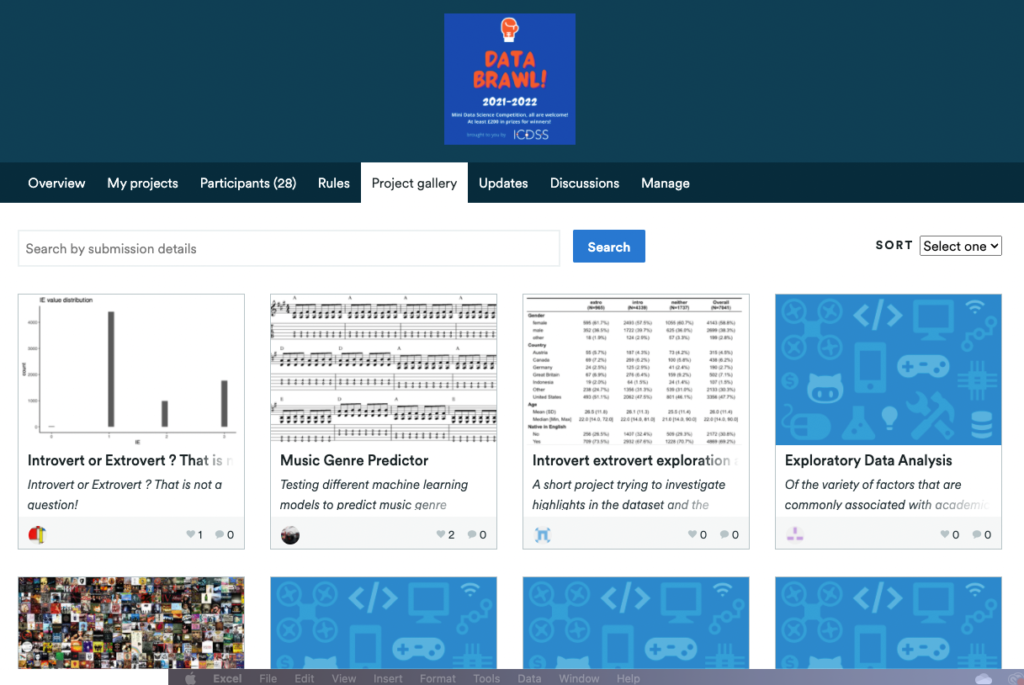Special thanks to our judges, we now have the results of our first Data Brawl! This was a beginner-oriented data science mini-competition, where participants were tasked to generate meaningful insights from one of three datasets we provided. Thank you to the 13 Teams who took part- we hope you learnt a lot from this experience!

Winners
Congratulations to the Teams below who have come first place in their respective Datasets! They not only have demonstrated their technical skills but also have communicated it to a high standard.
- Music Genre Prediction: Blow Water (Adrian Wong 2nd year from JMC, Amy Yau 2nd year from EEE)
- Introvert vs Extrovert Prediction: Getafe (Nel Benlloch Guajardo, Health Data Analytics with Machine Learning)
- Student Alcohol Consumption: NJ (Desmond Lin, Mingxin Shen both 2nd year Mathematics)
Runner ups/ Honourable Mentions
In no particular order, the following teams have also done well on their projects but have just missed out on the top prize.
- Big Data Energy (Bryan Tan 2nd Year EIE, Alex Chen Hu 2nd Year Physics)
- WQ (Wei Quan, Sophie Lai, Shaun Tan MSc Health Data Analytics and Machine Learning)
- Music Genre Predictor (Simonetta Ifeji Theoretical Physics)
- One-hot (Josiah Wu 1st year Mathematics)
- JO20 (James Ong 1st year EIE)
- Adam Brzosko (Physics)
All teams above please contact icdss@ic.ac.uk to claim your prize! For the winners, we’ll be in contact to ask for a blog contribution so you can share your experience with all ICDSS members!
General Feedback
Everyone can also ask us for feedback from the judges. But some main points to improve on for everybody is as follows:
- Need to set out motivation from the get-go and have a good narrative i.e. explain what question you want to answer and why it is interesting
- Properly explain the dataset and the variables that are given
- Properly format your figures
- Remember to justify decisions made, why this model, why this choice of metric?
- Try to start using GitHub and Jupyter Notebooks!
Thanks and see you next year!